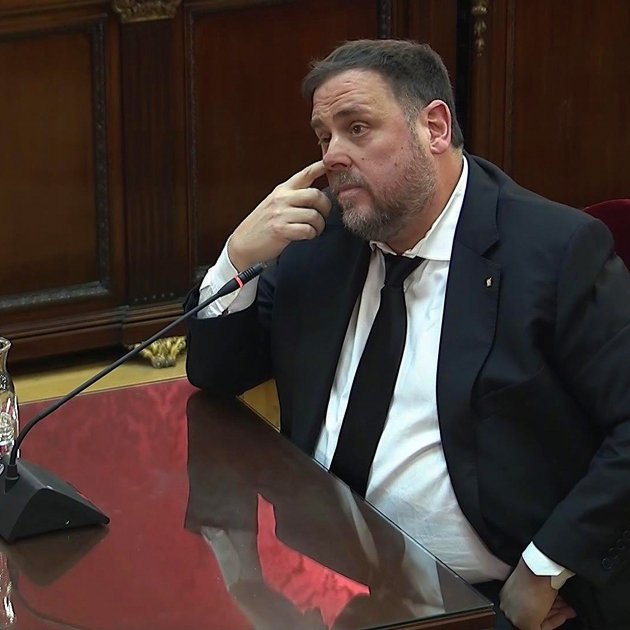The European Court of Justice (ECJ) has ruled that jailed Catalan politician Oriol Junqueras had immunity from the moment he was officially elected to the European Parliament on June 13th, after Spain's electoral commission proclaimed the final election results. Thus, the European Court states that he should have been able to leave jail at that time and travel to Brussels to take office.
In a hearing of the Luxembourg court this Thursday morning, it was also ruled that if the Spanish Supreme Court believed that pro-independence leader Junqueras should have been kept in jail, it had to tell the European Parliament and ask for the suspension of his immunity.
The ruling is clear in its assessment of the facts at the time that they occurred and represents a slap in the face for Spanish justice whose correct course of action in the spring was to have either allowed Junqueras to travel to take up his office or to have asked for the removal of his immunity. But the EU court does not clarify in its ruling if the decision can be applied now, that is, if Junqueras should now be able to go free to perform his duties as an MEP in the European Parliament.
The decision of the European court resolves the Spanish Supreme Court's doubt as to the precise time at which candidates for European parliamentary office are considered as MEPs, and it was in this regard that Spanish judge Manuel Marchena asked the European court to resolve a question which at that time he regarded as unclear: whether the immunities provided for in article 9, first and second paragraphs, of the Protocol on privileges and immunities of the European Union apply in the period preceding the first session of the European Parliament after election.
The ECJ has today expressed itself very clearly on this point, saying that Oriol Junqueras has been a Member of the European Parliament since the moment he was proclaimed elected, and therefore had parliamentary immunity and should have been able to take possession of his office. This was impossible at the time because Junqueras, the pro-independence politician who was Catalan vice president at the time of the 2017 independence referendum, was being held in provisional custody and the Supreme Court refused to lift the measure.
The court's ruling is in line with the advice previously given by an ECJ advocate general in November.
And now what?
Today's ruling opens up the possibility that Oriol Junqueras will be allowed to fulfill his obligations as a Member of the European Parliament, and since similar circumstances apply, that the same could happen to the exiled Carles Puigdemont and Toni Comín, the other two pro-independence Catalan politicians elected as MEPs and also blocked from taking up office. For this reason Junqueras's political party ERC has already requested that October's verdict in the Catalan independence trial should be declared null and void, and Junqueras should be released from prison immediately.
However, the situation is legally very different from the conditions that applied when the Supreme Court blocked Junqueras in spring of 2019. Now, Junqueras's trial has concluded and he has been sentenced to 13 years' prison for sedition and misuse of public funds - whereas previously he was jailed on remand. The decision remains in the hands of the Spanish Supreme Court.
